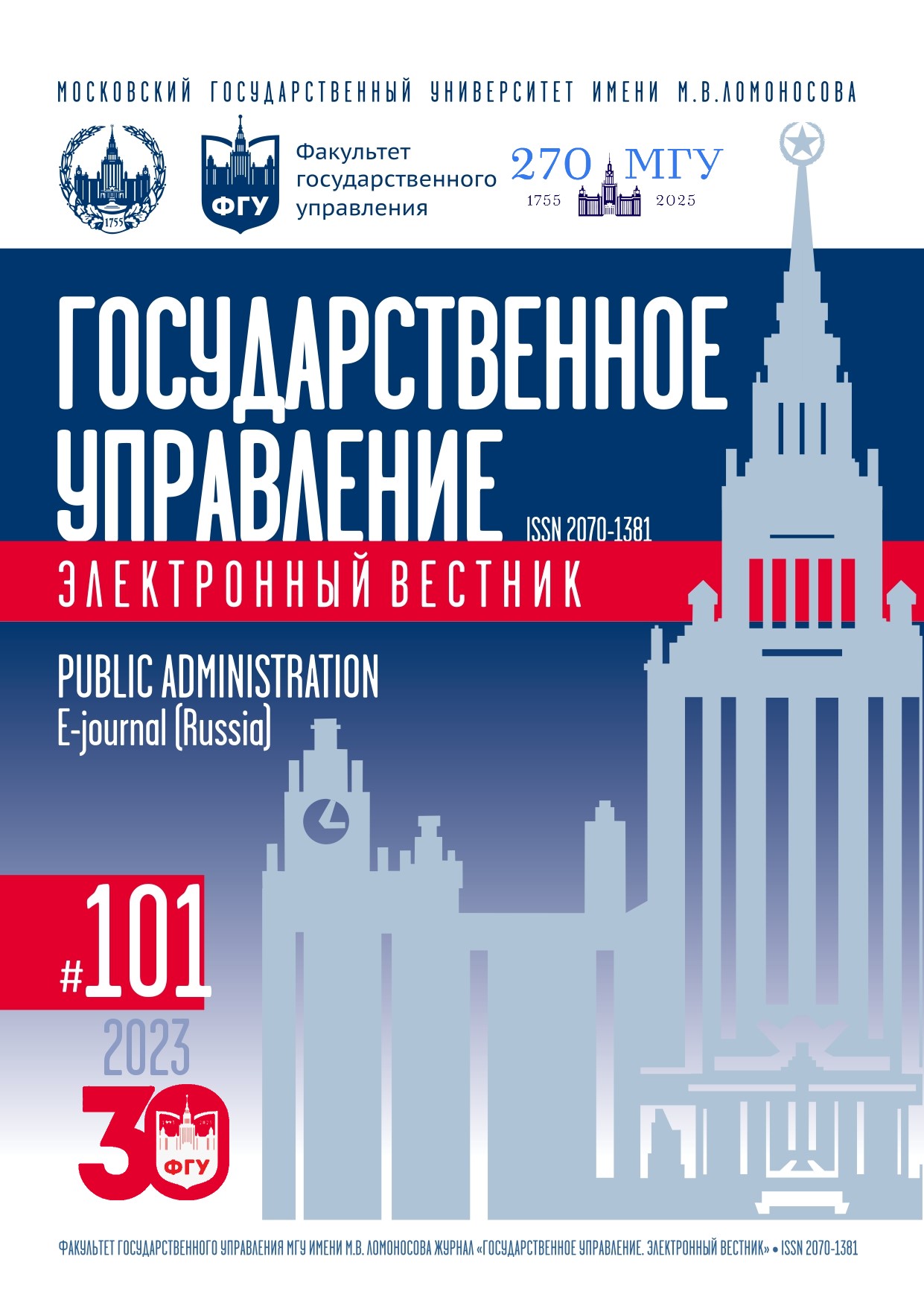Personnel Reserve of Educational Organizations of Higher Education and Scientific Organizations: Opportunities for Formation and Management on the Basis of Councils of Young Scientists
Keywords:
Personnel reserve, academic reserve, higher education organizations, scientific organizations, council of young scientistsAbstract
The article discusses the issues of forming a model of personnel reserves for organizations in the field of science and higher education, based on developing models of Councils of Young Scientists. As practice shows, a unified mechanism for personnel renewal and government implementation in the current sphere has not yet been created. The study is based on statistical data from the Ministry of Science and Higher Education of the Russian Federation and the Federal State Statistics Service, a survey of high- and mid-level management personnel of universities and scientific organizations from 39 regions of Russia, as well as the practical, research and management experience of the authors. As a result, age imbalances in the management leadership of scientific and educational organizations were identified, which directly contradict the representatives of national development laid down in strategic documents in this area. The experimental model proposed by the authors for creating councils of young scientists makes it possible to create a mechanism for selecting candidates for the reserves of universities and scientific organizations, organize practice-oriented training for reservists, and change personnel inter-university interaction. The authors have developed proposals for the organizational phasing of the process of forming a personnel reserve, the mechanics of its interaction with the leadership of universities and scientific organizations. While communication tools are proposed for the development of an information and analytical system, it is necessary to take into account the importance of coordinating the development of the personnel reserve. Based on project management methodology, a business model for these initiatives has been developed, including information about consumer segments, value proposition, key resources, partners, etc. As a result, conclusions were drawn about the possibilities of implementing this model on the basis of several universities, with the prospect of further scaling it at the national level, and about the applicability and effectiveness of implementing this project at the federal scale.
References
Базаров Т.Ю. Психологические критерии оценки кандидатов в кадровый резерв // Психологическая работа в системе морально-психологического обеспечения оперативно-служебной деятельности личного состава: состояние, проблемы и пути решения: Сборник материалов Первой Международной научно-практической конференции. М: Академия управления Министерства внутренних дел Российской Федерации, 2018. С. 95–99.
Боровиков Ю.С., Волков Ю.В., Долматов О.Ю., Мочалина Т.А. Планирование численности кадрового резерва университета // Известия ТПУ. 2005. Т. 308. № 7. С. 239–242.
Воронов А.С. Развитие научно-исследовательского потенциала молодежи и популяризация науки среди школьников, студентов и молодых ученых России // Государственное управление. Электронный вестник. 2020. № 78. С. 198–228. DOI: 10.24411/2070-1381-2020-10040
Горлушкина Н.Н., Колесников Ю.Л., Куркин А.В., Щербакова И.Ю., Филиппова Е.А. Автоматизированная система формирования и управления кадровым резервом университета // Научно-технический вестник информационных технологий, механики и оптики. 2011. № 5(75). C. 139–144.
Демешкин Г.В. Основные аспекты формирования кадрового резерва // Вестник Томского государственного университета. 2010. № 331. С. 132–134.
Долматов О.Ю., Волков Ю.В., Козлова Н.В., Годымчук А.Ю. Психолого-образовательная программа подготовки кадрового резерва вуза // Высшее образование в России. 2009. № 9. С. 157–159.
Кальмай О.М., Юдина Е.С., Шерина О.А., Латышев А.С. Кадровый резерв как фактор повышения конкурентоспособности современного университета // Университетское управление: практика и анализ. 2016. № 1(101). С. 98–108.
Колычев В.Д., Беляева Т.В., Бронникова Ю.А. Опыт формирования кадрового резерва // Высшее образование в России. 2017. № 6. С. 114–120.
Петрова О.В., Буреева Н.Н., Соколовская С.В. Развитие кадрового резерва руководящего состава университета как условие лидерства на глобальном рынке образовательных услуг // Человек и образование. 2019. № 2(59). С. 103–107.
Пугач В.Ф. Еще раз о возрасте преподавателей в российских вузах: старые проблемы и новые тенденции // Высшее образование в России. 2023. Т. 32. № 3. C. 118–133. DOI: 10.31992/0869-3617-2023-32-3-118-133

